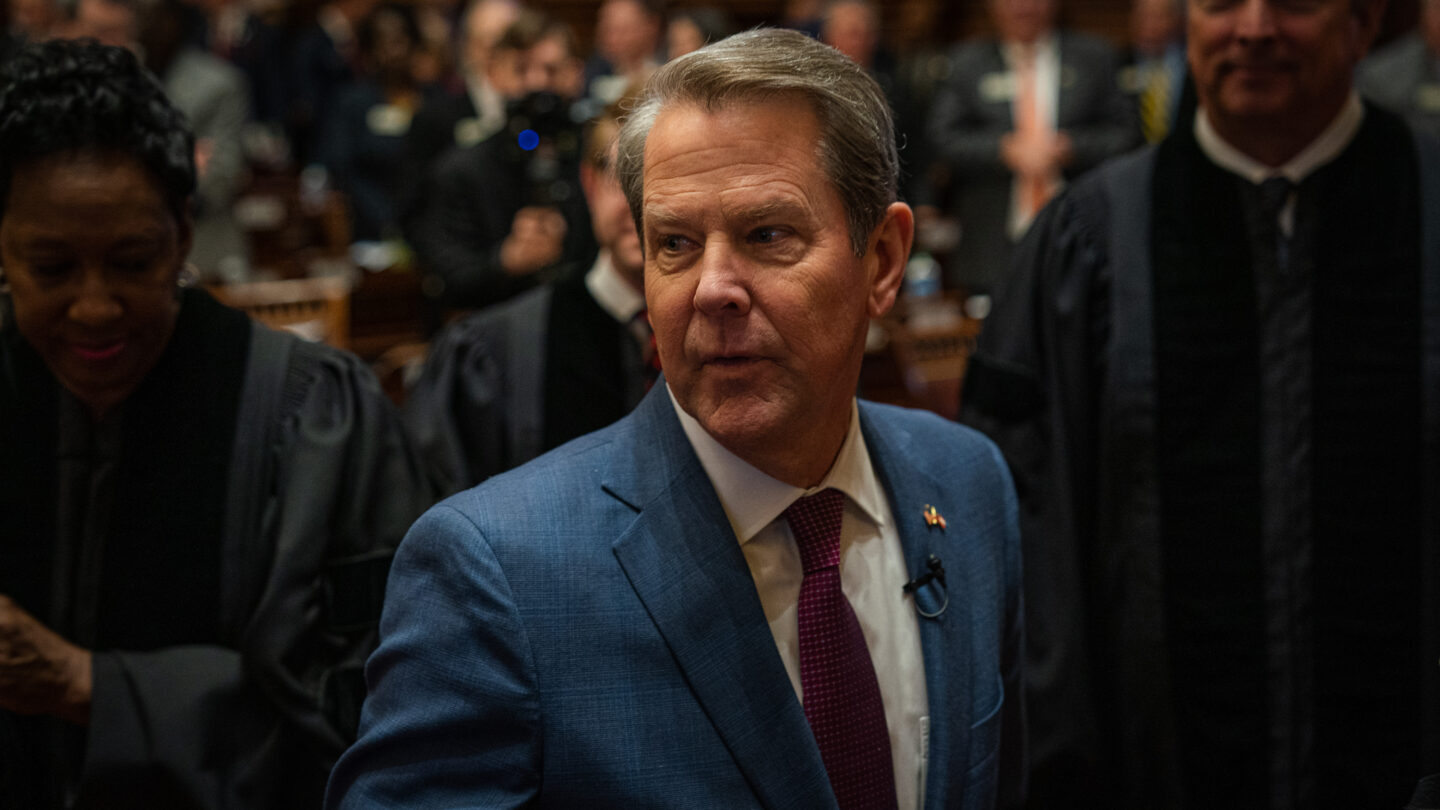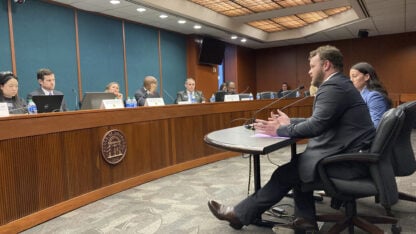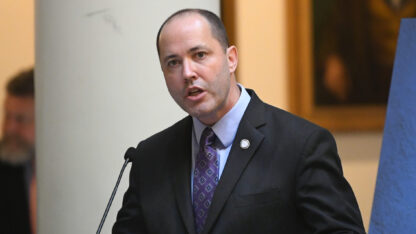Two more pieces of Gov. Brian Kemp’s tax cut agenda are advancing in the state House.
The House Ways and Means Committee voted Thursday to pass bills that would give income tax filers another $1 billion in tax refunds and to ratify the Republican governor’s decision to waive tax collection on gasoline and diesel fuel for months.
Kemp also plans a $1 billion property tax rebate that is moving forward as part of the amended budget for this year. Both the income tax and property tax givebacks were key Kemp pledges in his successful reelection campaign last year.
House Bill 162 calls for a second year in a row of income tax refunds. It would give give a refund of up to $250 to single filers, up to $375 to single adults who head a household with dependents and up to $500 to married couples filing jointly. The refund would only be paid to people who filed tax returns for both the 2021 and 2022 tax years, and no one can get back more than they paid in state income taxes in 2021.
Rebates or credits would be issued in the spring if the bill passes. They would be automatic for anyone who files a 2021 and 2022 return, with no further action required. People who don’t owe state income taxes, including many retirees, wouldn’t get any money.
“The governor is committed to the citizens of Georgia, and this is one way he’s going to give their money back to them,” said Rep. Lauren McDonald, a Cumming Republican.
The IRS announced last week that Georgia’s refund checks from 2022 won’t be treated as taxable income for people now paying federal income taxes if they take the standard deduction. Most people take the standard deduction. People who itemize returns could have to pay federal income taxes on the state refund.
Kemp can seek another year of rebates because the state coffers continue to overflow. Georgia ended its last budget year with $6.6 billion in surplus revenue in the bank, even after the state’s rainy day fund was filled to its legal limit of $5.2 billion. Budget projections released in January show revenue collections are likely to end the current 2023 budget year $2.4 billion above original projections.
Last year’s rebate, plus the promise of more money, were key features of Kemp’s victories over Republican primary challenger David Perdue and Democrat Stacey Abrams.
The committee also approved House Resolution 66, which ratified Kemp’s decision to keep extending what had originally been legislated as a six-week holiday on gasoline and diesel taxes last spring. Through a series of executive orders, Kemp pushed that extension past his reelection date into early January. Such a move is legal as long as lawmakers approve it the next time they meet.
“The governor’s actions delivered much needed relief to Georgians at the gas pump,” said Rep. Matthew Gambill, a Cartersville Republican and Kemp floor leader.
The fuel tax suspension cost the state an estimated $1.7 billion in foregone revenue over parts of two budget years. The state already dipped into its surplus to make up $600 million in lost revenue for the 2022 budget year. Officials estimate they will use $1.1 billion in other tax revenues from the current budget year to keep roadbuilding funds flowing.
Money for Kemp’s $1 billion property tax break plan would also come from the current year’s budget, with Kemp saying taxpayers with homestead exemptions would get about $500 from the state.
That means only the $1 billion in income tax rebates would come out of the accumulated $6.6 billion in cash, meaning Georgia could start its next budget year with $5 billion in spare cash.









